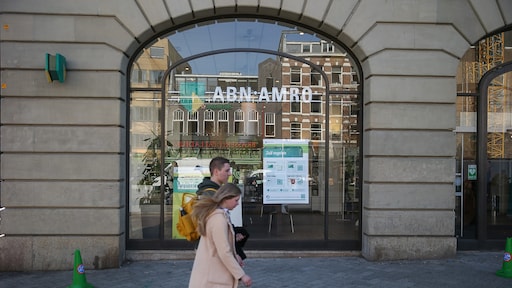ABN Amro follows competitor ING and lowers savings interest rate


ABN Amro is following ING's example and is also going to lower the savings interest rate. From 1 May, savers will receive 1.25 percent interest on savings balances up to and including 500,000 euros. This is currently 1.5 percent. The interest rate reduction applies to both private and business savers. The interest on children's savings accounts is also falling.
Earlier this month, ING already lowered the savings interest rate, also to 1.25 percent. It was the first time since the autumn of 2023 that the largest bank in the Netherlands adjusted the interest rate.
Rabobank announced interest rate reductions on various savings products in February. Although the savings interest rate at this bank is still higher than at other major banks.
CriticismEarlier, the major banks were criticized for only raising their interest rates to a limited extent, after the European Central Bank (ECB) had rapidly raised its interest rates. The ECB has now actually started lowering the interest rate. So banks are now quick to lower the savings rates.
Last week, Rabobank did not want to say anything about a possible new interest rate cut. "We do not anticipate any future interest rate decisions, so we cannot make any statements about that."
It was previously announced that the Dutch are increasingly saving in banks abroad, where interest rates are often considerably higher. In June 2022, Dutch households still had around 7.3 billion euros in bank accounts in other European countries. "In two years, the bank balances of Dutch households in other countries in the eurozone have more than doubled (around 15 billion euros, ed.)", DNB reported last year.
According to De Nederlandsche Bank, the Netherlands 'traditionally' banks a lot in nearby countries such as Germany, Belgium and France, but Estonia (where Revolut, for example, comes from) and Italy are also popular.
Lack of competitionThe low savings interest rate at Dutch banks is partly due to a lack of competition, the ACM wrote last year. "The ACM has no indications of prohibited agreements between the major banks to keep the interest rate low. However, it is plausible that there is 'tacit coordination' between the major banks about savings interest rates."
"This means that banks keep an eye on each other's interest rates and follow each other closely instead of competing." According to the ACM, the effect is comparable to a cartel.
How much savings do you actually need? In the video we explain it to you.
RTL Nieuws






